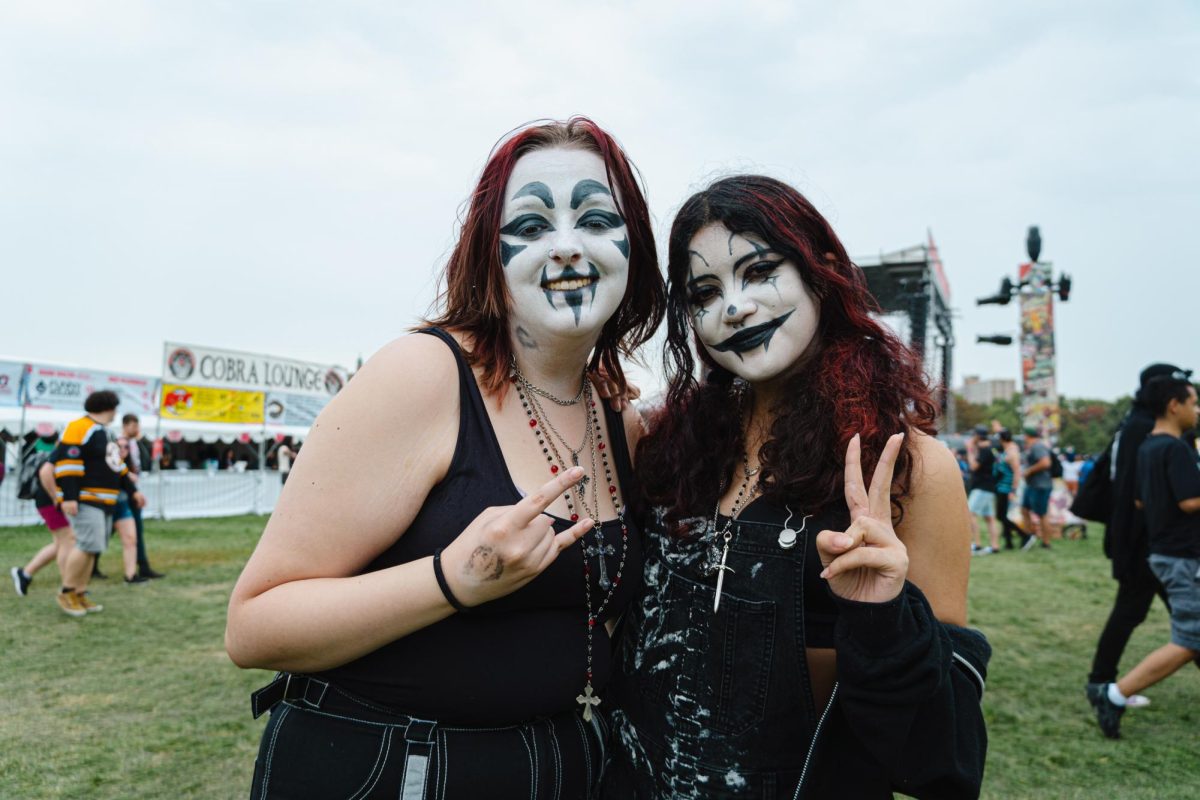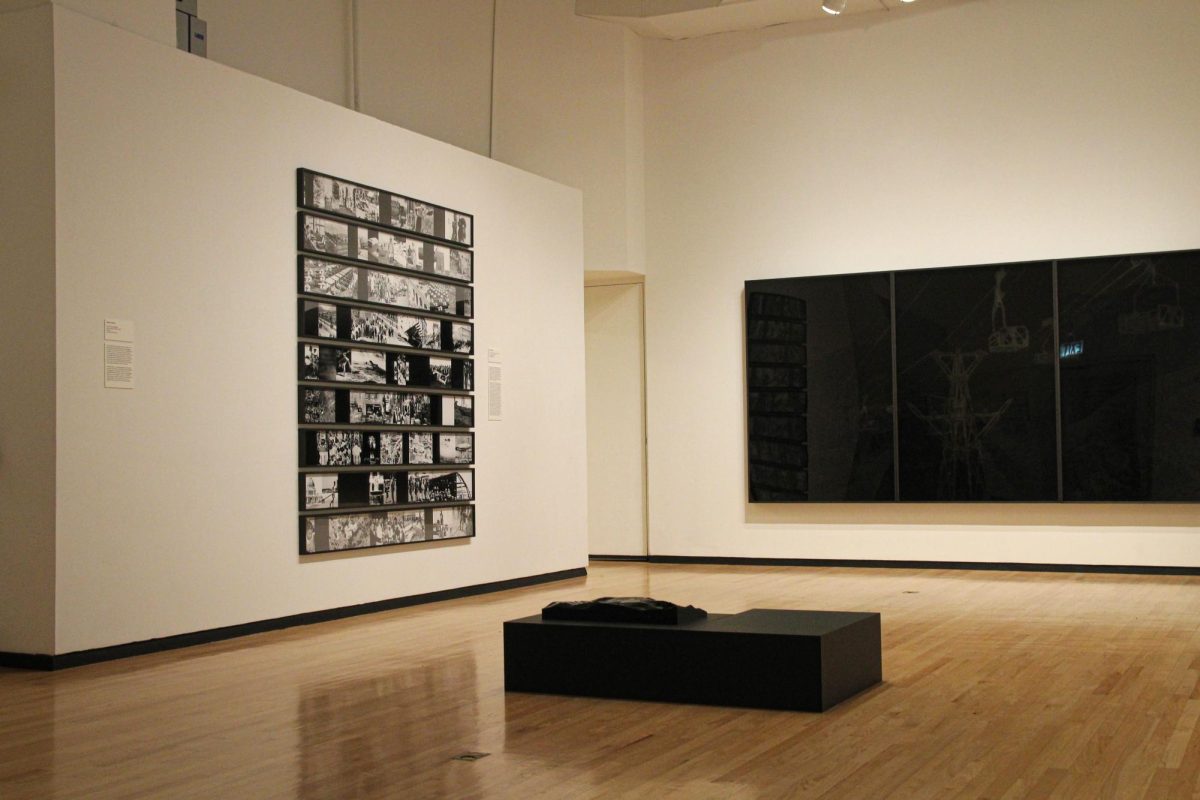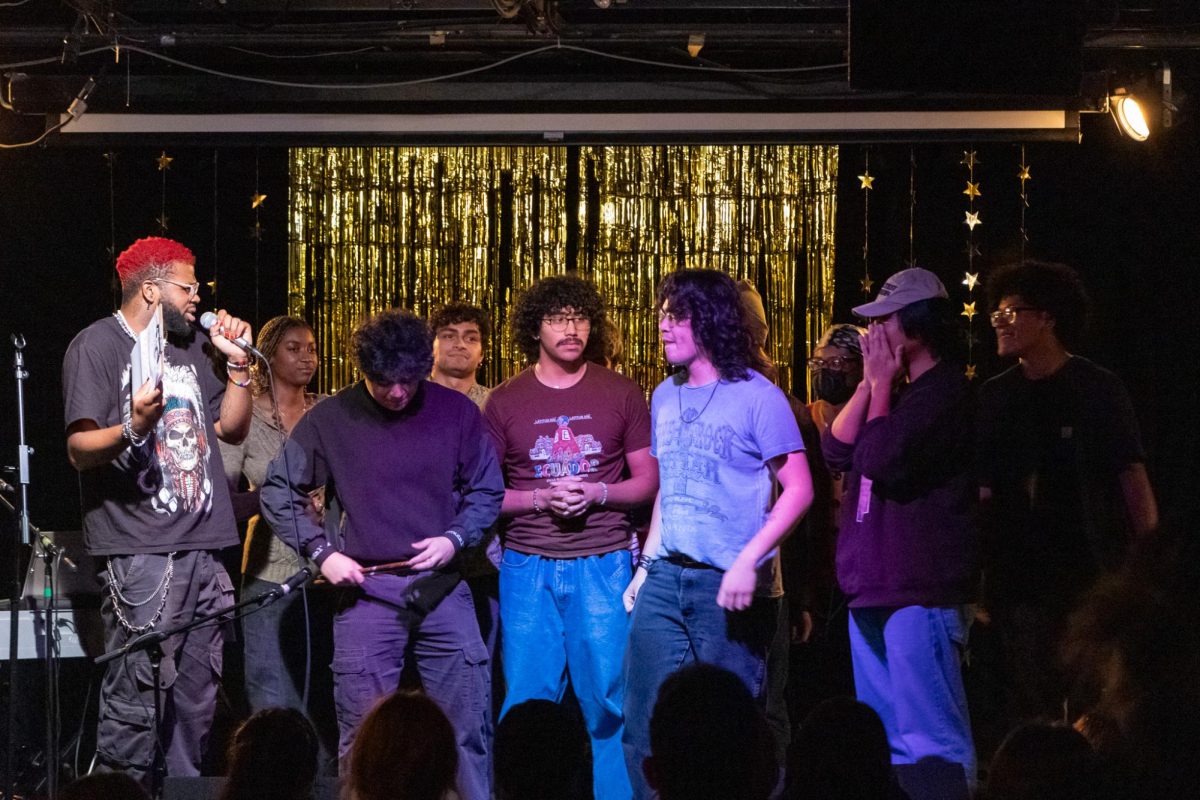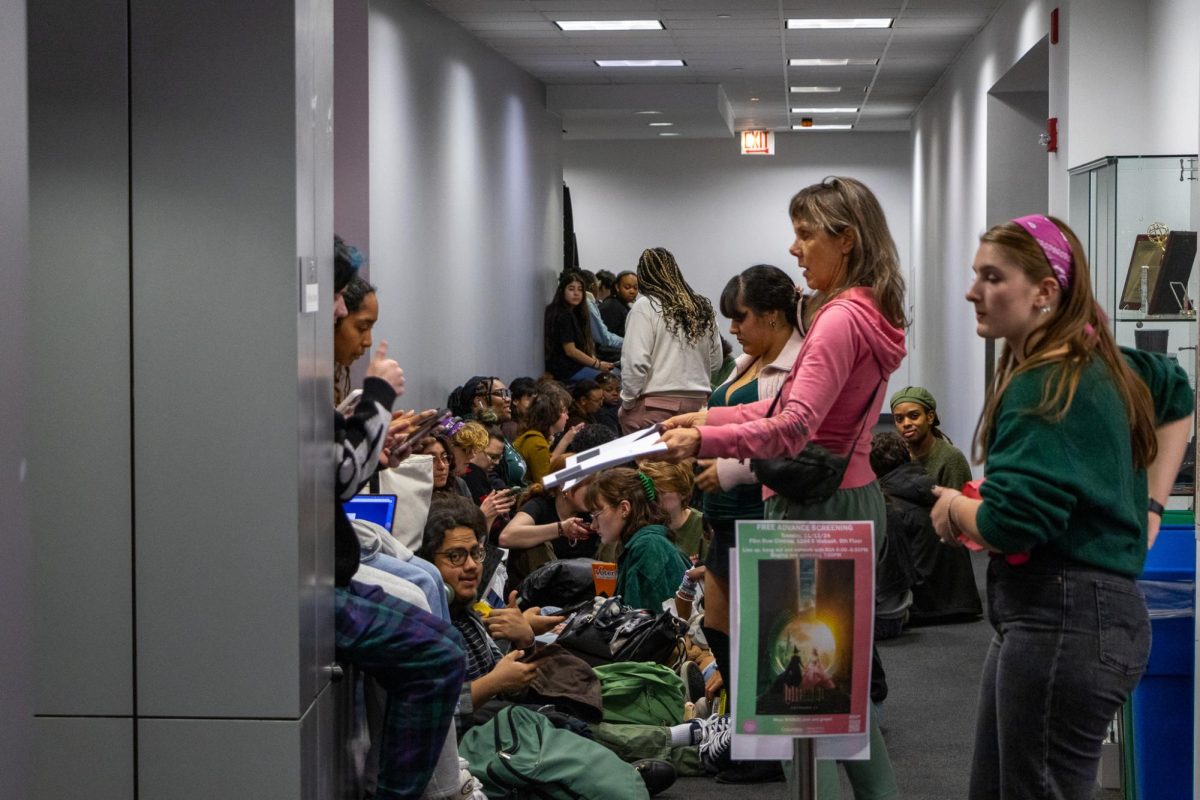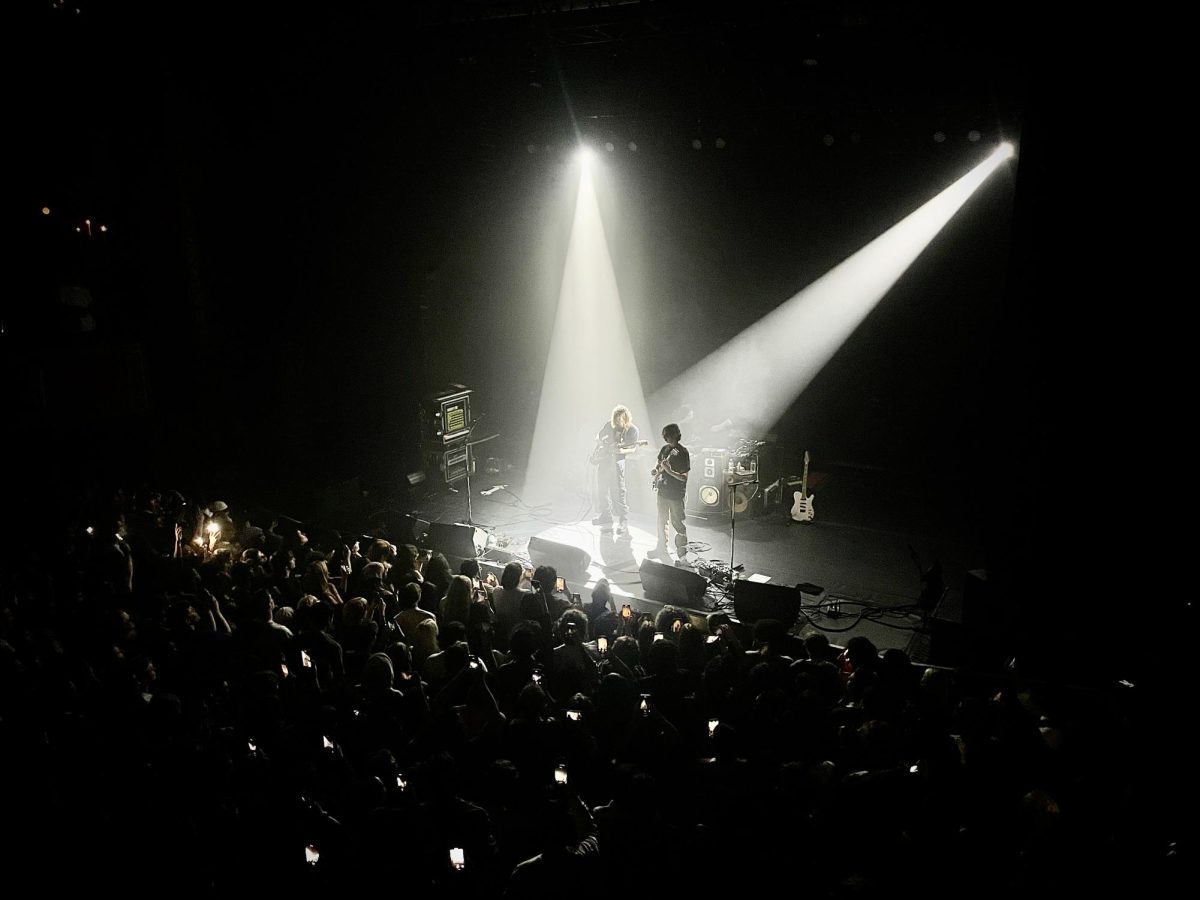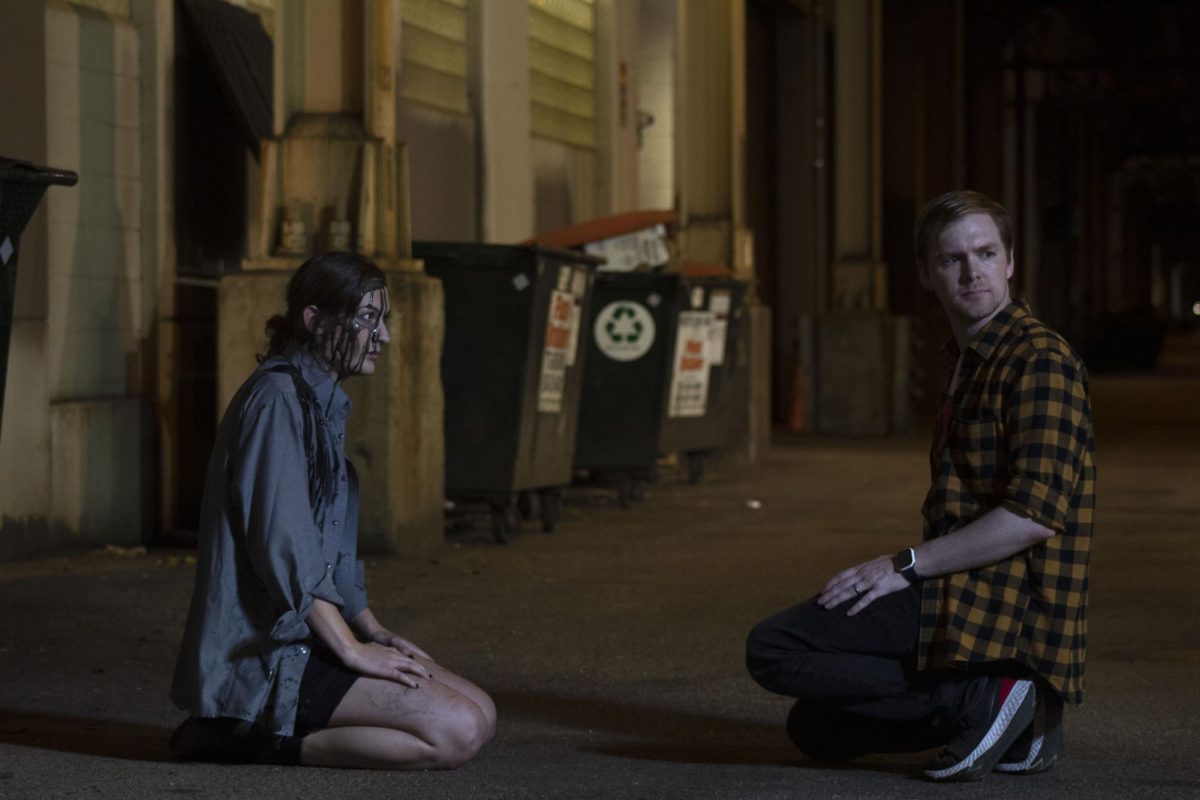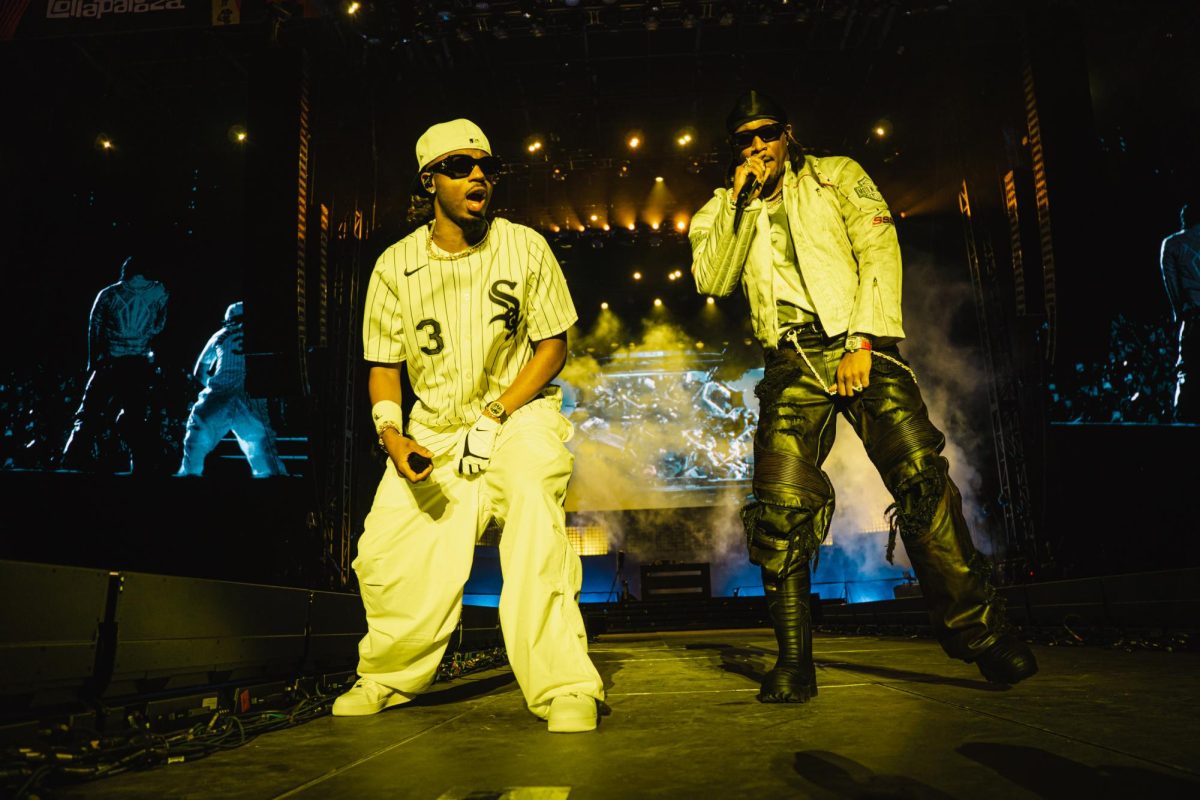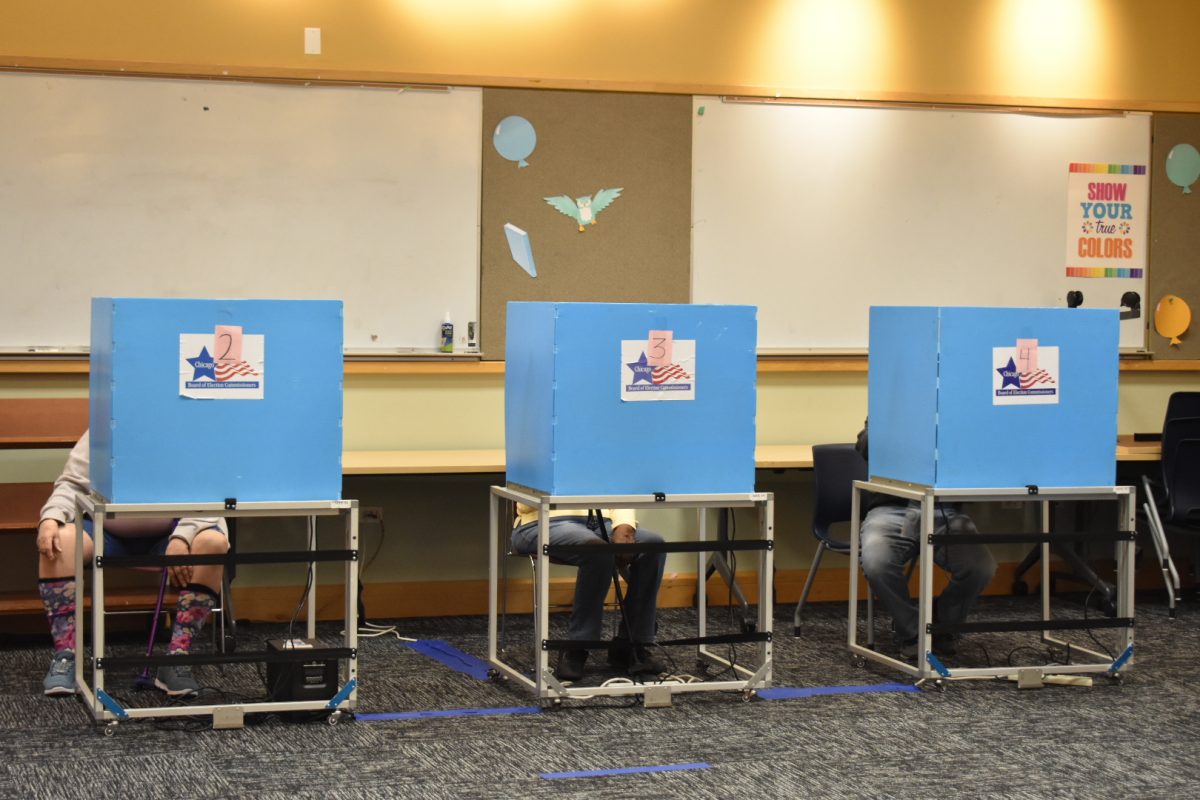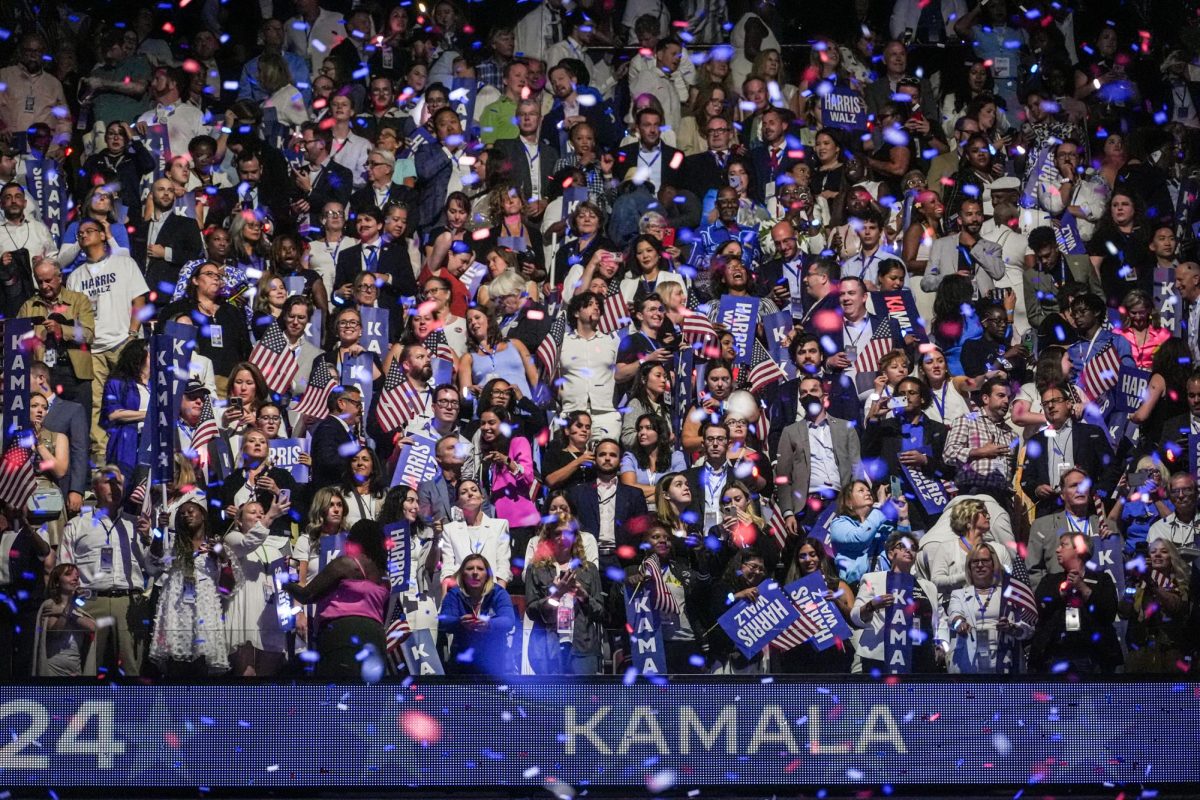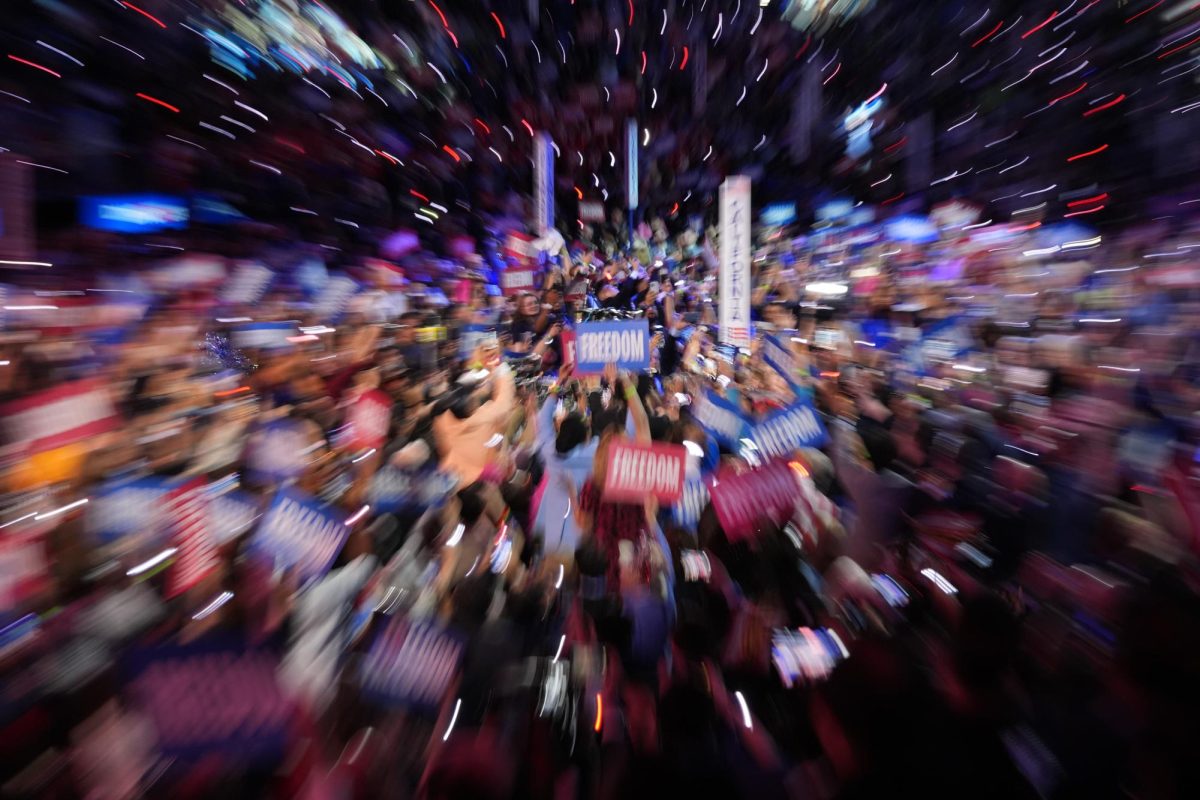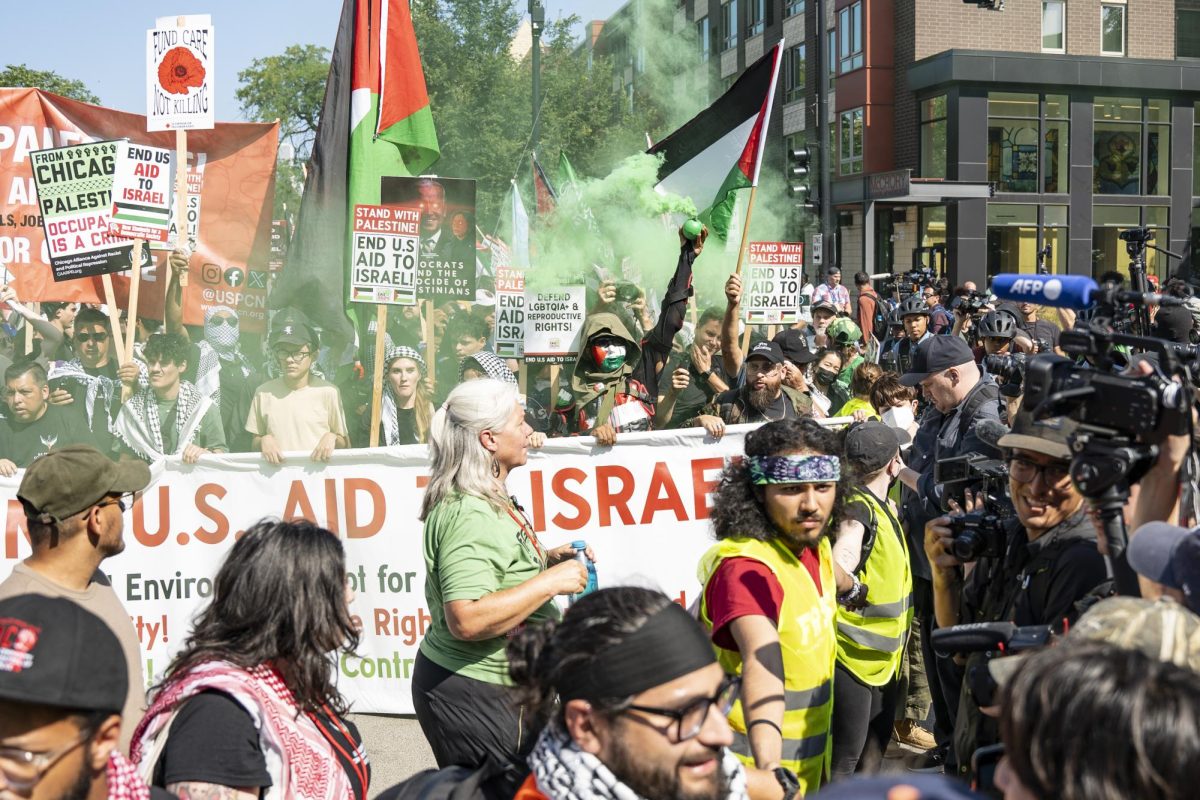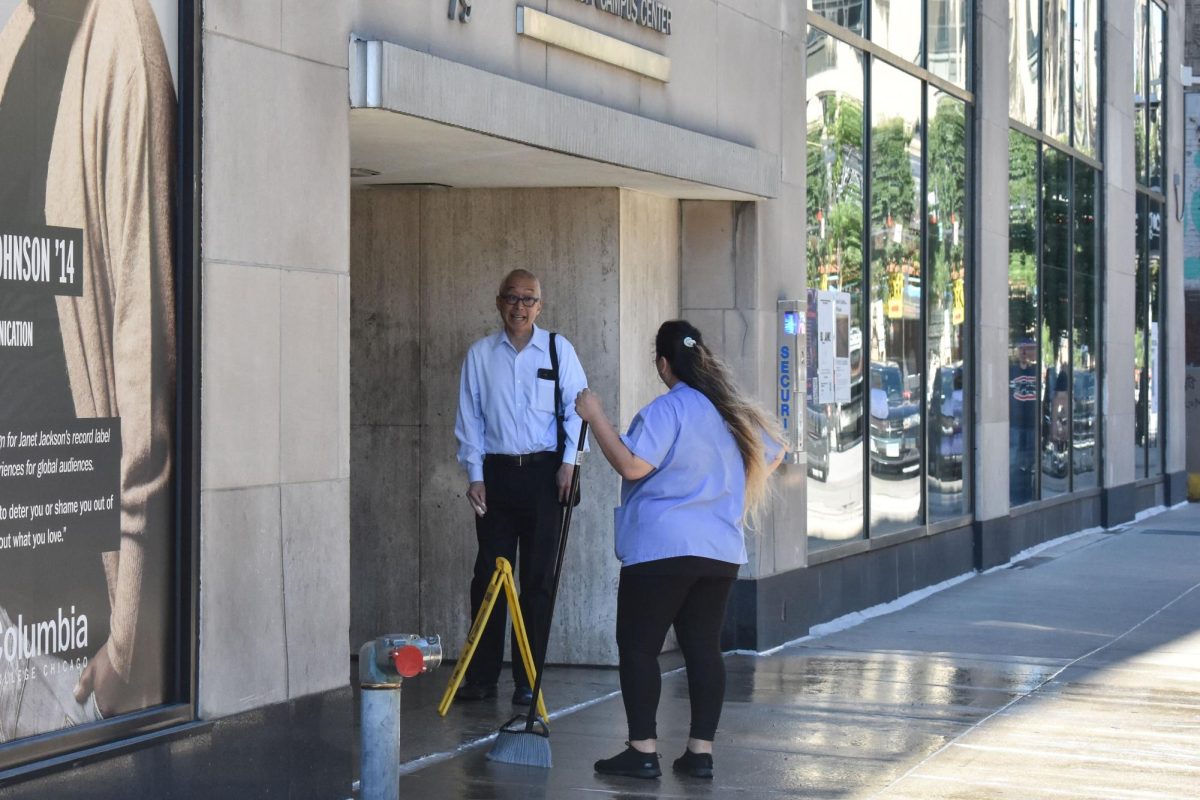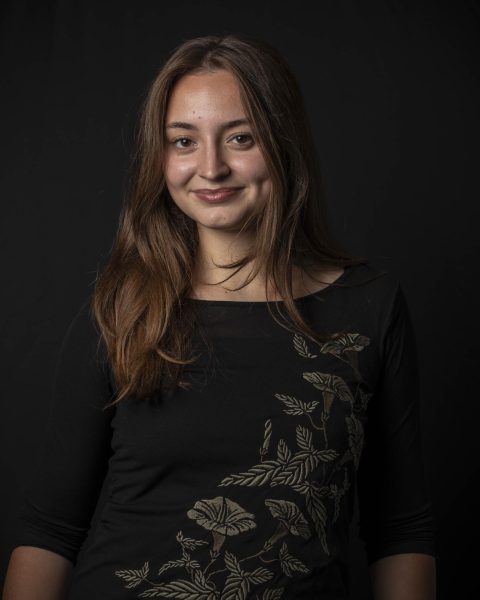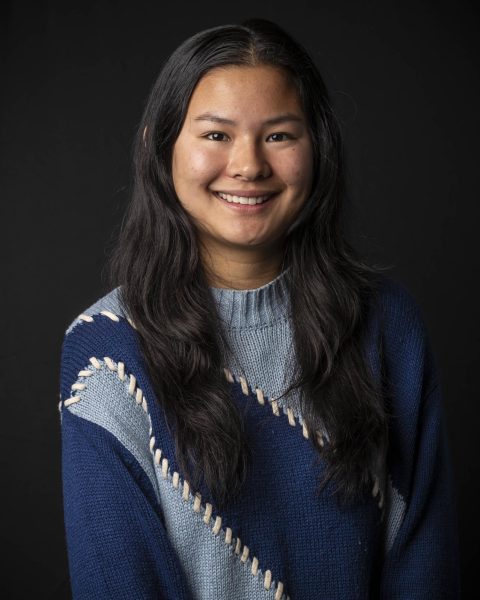Izzy Park and Kai Sazo came to Riot Fest with one goal in mind: seeing Insane Clown Posse.
Decked out in the black and white face paint that has become the Detroit hardcore hip-hop duo’s signature, Park and Sazo said their love for the band stems from both their music and the community of fans.
“They talk about killing fascists and beheading racists, and that’s pretty awesome,” Sazo said.
For Park, Insane Clown Posse’s fanbase is tight-knit.
“I’ve met nothing but nice juggalos today,” Park said. “Sure, we like really gritty things, but we’re still a family.”
Park said punk music has been in their life for decades.
“I’ve been in the punk scene since I was born, my parents were punks in the 70s and 80s, I’m a punk now,” Park said. “It’s a community about loving each other and hating hate.”
Emerging in the mid 1970s, the punk rock music scene rapidly grew a fanbase of like-minded people who wanted to go against the grain. Rooted in 1960s garage rock, punk bands rejected the traditions of mainstream 1970s rock, forming an entirely new sound.
Since its birth, punk culture and fashion has strayed far away from the norms when it comes to expressing individuality.
“Music has always been like a place where people have felt free to experiment with the way that they’re dressing or gender presentation, and so on and so forth,” said Nicolette Alvarez of the hard-rock group Pool Kids, who performed on Saturday, Sept. 16, on the Riot Stage.
For festival-goer Chris Riddle, style is a way to connect to punk history.
“My haircut right now is a Chelsea Hopwood which is a skinhead haircut, but skinheads started in the Black Jamaican community, it’s always been, and the punk community has always been a space for progress and making those leaps and bounds,” Riddle said.
Some festivalgoers used their own creativity and made their own outfits.
“I made this skirt, put the blood on it and everything,” said Michaela Jenkins, when talking about their bloody, fishnet outfit. “I cut the shirt and the leggings and so it’s a lot of just stuff you would buy at the store.”
In the midst of the high-energy crowds and performance spaces, a tiny booth close to the carnival rides held wedding ceremonies, where punk fashion was on full display. Self-described “punky bride” and “Chucky” Caitlin Murray and Marcos Degante decided a year ago that they wanted to get married at Riot Fest.
For Jenkins, Riot Fest is an important, safe space.
“I just feel like it’s so important to have [a safe space] and to be able to come in and not feel unwelcome,” Jenkins said.
Riddle agreed with Jenkins about Riot Fest being a safe space, but also punk culture in general.
“Punk is, and has always been, a safe haven for the weirdos and marginalized people,” Riddle said.


